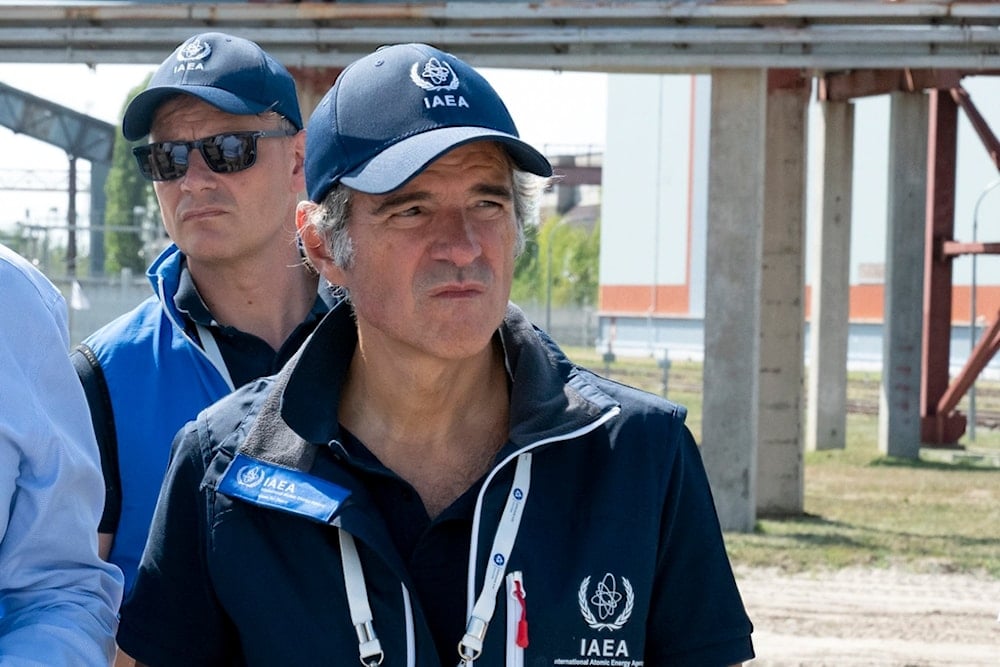Iran bars IAEA chief Grossi over leak to Israeli regime
Iran bans IAEA head Rafael Grossi over claims he leaked sensitive nuclear data to “Israel,” as Tehran warns of retaliation but keeps the door open for talks.
-

International Atomic Energy Agency chief Rafael Grossi visits the Kursk Nuclear Power Plant (KNPP) outside the town of Kurchatov, in the Kursk Region, Russia, on Tuesday, Aug. 27, 2024 (Rosatom State Atomic Energy Corporation)
A senior Iranian official has accused the head of the International Atomic Energy Agency (IAEA), Rafael Grossi, of leaking classified nuclear information to the Israeli regime, declaring that Tehran would no longer allow him to enter the country.
Ebrahim Amir Rasouli, political advisor to the speaker of Iran’s parliament, made the statement on Al Mayadeen, stating: “Grossi has betrayed the agency’s trust by sharing sensitive data, including the names of our nuclear scientists, with the Zionist entity.”
Amir Rasouli added firmly: “Iran will not permit Grossi to set foot on its soil again.”
The remarks come just a day after the IAEA confirmed that its inspection team had left Iran and returned to its Vienna headquarters.
Iran warns against threats, leaves door open to talks
Amir Rasouli also issued a stern warning to Tehran’s adversaries, urging them to stop using “the language of threats.” He emphasized that Iran possesses “weapons that will surprise the aggressors” and that the country was fully prepared to respond immediately to any provocation.
“We are in our best condition,” he said. “And if the enemy makes a foolish move, we are ready to teach them a harsh lesson from the first moment.”
Despite the tense rhetoric, Amir Rasouli noted that Iran still considers diplomatic negotiation an option, but any talks must take into account the outcome of what he described as a “war of aggression” and the responsibilities of the parties fueling the military escalation.
Iran suspends cooperation with IAEA over safety concerns
Iran’s parliament has passed legislation suspending cooperation with the agency until the safety of its nuclear infrastructure can be ensured. While Iran has yet to officially notify the IAEA of the suspension, the agency’s ability to monitor Iran’s nuclear program remains effectively frozen.
“The inspection regime cannot afford further disruption,” IAEA Director General Rafael Grossi warned in a press conference last week, emphasizing the urgency of restoring access.
Iranian Foreign Minister Abbas Araghchi, however, maintained that Iran remains committed to the Nuclear Non-Proliferation Treaty (NPT), under which the country must account for all enriched uranium and allow international verification.
Fallout from Israeli, US strikes
The latest standoff follows unprecedented military strikes by the Israeli regime and the United States that they claim destroyed or heavily damaged Iran’s three primary uranium enrichment sites, allegations that Iran denies.

 4 Min Read
4 Min Read










